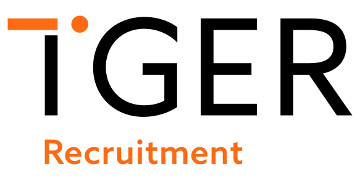Although no specific AI legislation exists in the UK, current laws governing data protection, equality, and intellectual property impact AI usage, and organisations need to be aware of how to implement AI in order to stay compliant.
Read more: AI jargon HR needs to know
Further, the EU AI legislation is being enacted this year and, once it is fully in force, will have an impact on many UK organisations despite the UK no longer being an EU member state. Reports also indicate that the government may revise its hands-off "pro-innovation" legislative approach. With this in mind, UK organisations should keep on top of the requirements of the new law as it could shape future domestic legislation.
Legislative hurdles are not the only obstacles; organisations must also tackle several valid ethical concerns. Nearly half (43%) of organisations report that ethical concerns are a barrier to implementing AI into HR processes. These might include data privacy and security risks, a lack of transparency around the use of AI in HR systems and processes, and the potential for bias, as bias exists in the data used to train AI systems.
Effective AI adoption
Given the legislative and ethical concerns, how do organisations best implement AI into compliance tasks?
Identify where AI can best be used
HR teams can start by identifying specific tasks where AI can best support compliance-related activity.
This might include repetitive and time-consuming tasks such as monitoring regulatory changes, managing policy documentation and flagging potential compliance risks.
Read more: Don’t ask what AI can do for you
Choose the right technology
Once identified, the next step is to ensure that the technology is tailored to business needs and that robust measures are in place to ensure regulatory compliance and mitigate ethical concerns.
Steps HR should take include asking questions of providers about the extent to which the technology can support desired outcomes, as well as the data privacy measures in place and systems to mitigate against the risk of bias.
Roll out AI gradually
Many HR departments would benefit from a gradual approach to AI implementation. Instead of full-scale AI deployment, start with one or two specific functions. This allows HR teams to test the technology, make adjustments, and learn without overwhelming resources or the people using it, while building confidence in the technology.
People professionals will also need to implement strategies such as training people on effective use of the technology, human oversight of the technology and obtaining data on the impact of the technology on outcomes for under-represented groups.
Ensure responsible usage
Creating robust policies and guidelines for using AI in the workplace is essential to ensure people are using the technology in a compliant and ethical manner. Many leading organisations have put together governance frameworks that include key principles like fairness, reliability, security, transparency and accountability.
Read more: How to introduce AI to talent management
Frameworks and policies should be developed collaboratively across departments, involving colleagues from various parts of the organisation to ensure they are robust and inclusive. However, this is a continuous process; HR teams should regularly review and refresh company policies, to align with changes in technology, regulations and employee expectations.
Allow for continuous learning
Around half (49.7%) of organisations reported that a lack of AI skills hinders adoption. HR professionals need hands-on experience with AI tools to grasp their potential and constraints. This will facilitate the effective integration of AI into compliance functions while ensuring that staff are both comfortable and skilled in using new technologies.
AI really does have the capacity to free up HR teams to focus on strategic tasks and improve efficiency across the team. Yet, this technology brings new challenges, so successful implementation will depend on effectively integrating AI's strengths with human expertise and insight.
By Bar Huberman, HR strategy and practice manager, Brightmine











